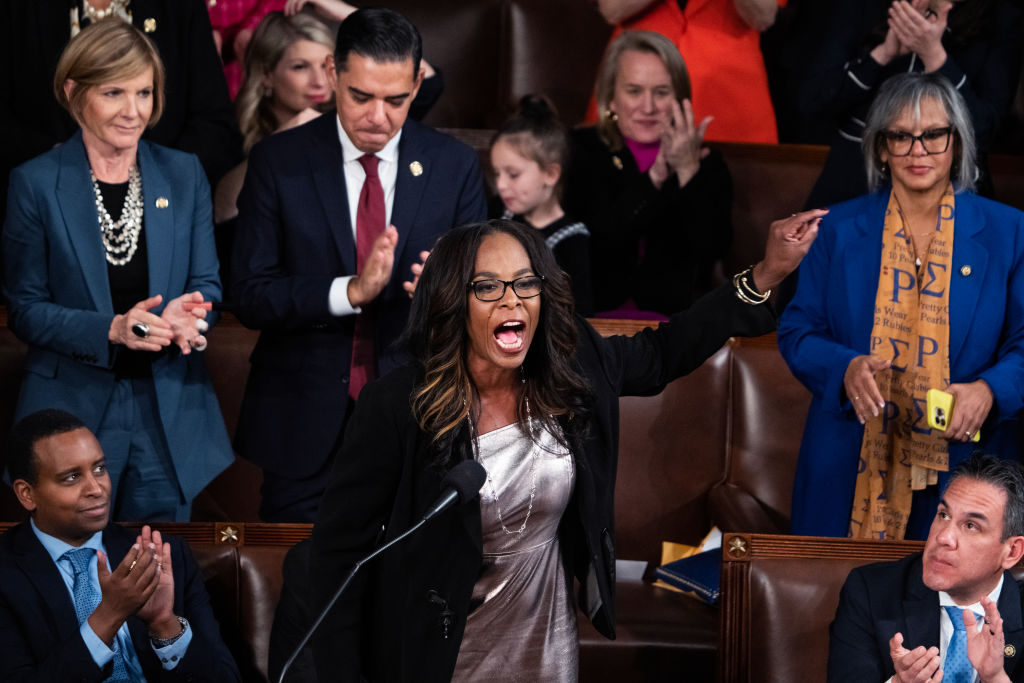There’s a nickname for House Speaker Mike Johnson shared among some Hill staffers and observers: “Deacon Mike,” a nod to his quiet Southern Baptist religious demeanor. But it also contains the idea that he is a man elevated beyond his expected station, charged with the monumental task of wrangling an extremely thin Republican House majority when he should rightly be in charge of keeping the worship center donuts fresh and the coffee hot.
In managing the expectations of his conference, Deacon Mike now faces his biggest test, one that was widely anticipated coming out of the November elections: a reconciliation bill larded with the priorities of multiple factions in Congress, and particularly hampered by the opposing forces of blue-state moderates and fiscal conservatives (yes, they still exist in the GOP). The sticking points are all well-known by now, but the amount of wiggle room available is shrinking.
House Ways and Means Chairman Jason Smith, fresh off a marathon hearing featuring one party-line vote after another, told reporters that there was only around $50 billion left for the state and local tax deduction pushed by the so-called SALT Republicans – an amount far too insufficient for some of the members from New York, with Representative Nick LaLota pronouncing the bill “dead on arrival” on the floor should the current language of a $30,000 deduction up to $400,000 in income endure (LaLota and his fellow New Yorkers want to effectively quadruple that number).
As for the conservatives and the shrinking number of moderate Republicans who still believe in workforce reforms for able-bodied Medicaid recipients, the potential of leadership to kick the can on the requirements until well into the future is prompting frustration. The expansions in the program due to Obamacare have overwhelmingly gone to able-bodied, working-age adults – representing 85 percent of participants in the expansion over the past decade – and according to the Congressional Budget Office, the program now pays more for them than it does for seniors, individuals with disabilities or low-income children.
In the past, this type of welfare-to-work programmatic reform would have garnered wide popularity among Republicans and even some Democrats. But this is the land of MAGA now, and in such a place, the rules have changed, and work requirements for “working-class” voters are a bridge too far for some. And another Medicaid policy could prove a particularly tough sticking point with Republicans on the other side of the hill, as senators like Josh Hawley of Missouri has already indicated his opposition to policy changes regarding healthcare provider taxes which would hurt his state’s ability to draw more funds from federal taxpayers (provider taxes effectively allow states to launder money from the federal government – it is not, in fact, a matter of a courageous dispute with the GOP’s “ghoul caucus”). And Senator Ron Johnson of Wisconsin compared the whole package to the Titanic, predicting it will sink in the Senate without bigger spending cuts.
For the Speaker, this is his first major test as a leader of the tenuous House Majority in the second Trump presidency. Their relationship has been relatively solid, but the Louisianan is in a job he was never expected to have, and it seems entirely dependent on the trust of the president and the bulk of his conference. As the Wall Street Journal’s Olivia Beavers reported today, some Republican members doubt if they can trust Johnson to keep his word, and “questioned whether his efforts to please colleagues hurt his ability to deliver tough news.”
Shepherding a reconciliation package through this many factions is definitely something that requires the energy of an Elder, not a Deacon. For Johnson and the GOP majority, the consequences of failure could be dire. And it’s possible the best endgame is finding a way to compromise where nobody’s happy, but nobody’s furious. In this Republican House, that’s how you keep your job.


























Leave a Reply